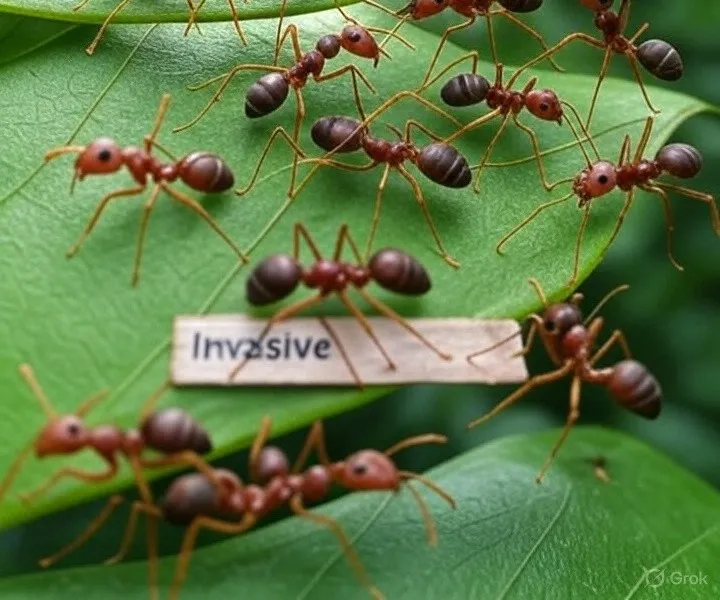A new threat is crawling its way through the U.S. — and it's small, sneaky, and potentially life-threatening. Asian needle ants, a stinging and carnivorous invasive species, are rapidly spreading across roughly 20 states, raising serious public health concerns.
🐜 What Are Asian Needle Ants?
These ants, native to East Asia, have earned the nickname “wicked” due to their venomous stings and elusive behavior. They’re difficult to detect, often hiding in leaf litter, wood piles, or mulch, and blend easily into natural environments.
Despite their tiny size, their stings can be dangerous — even deadly to some individuals. Last year, at least three cases of anaphylaxis were linked to Asian needle ant stings in Georgia, with experts warning that the real number could be much higher.
🚨 Why This Matters
Unlike fire ants, which build visible mounds, Asian needle ants are harder to detect and often sting without warning. They are most active and reach peak populations in July and August, just when many Americans are enjoying outdoor spaces.
Victims often report being stung while gardening, hiking, or moving wood, without ever noticing the ants nearby.
🧬 Public Health Risks
Asian needle ant venom contains a potent allergen that can trigger anaphylactic reactions in sensitive individuals. Health officials urge residents in affected states to be cautious outdoors and to seek immediate medical attention if symptoms such as swelling, difficulty breathing, or dizziness occur after a sting.
Entomologists also warn that the ants may disrupt native ant populations and ecosystems, posing additional ecological threats.
🗺️ Where Are They Now?
The ants have already established colonies in much of the Southeast and Mid-Atlantic, including:
- Georgia
- South Carolina
- North Carolina
- Tennessee
- Alabama
- Parts of the Northeast and Midwest
Efforts are underway to track and contain the spread, but climate adaptability and lack of natural predators have made it difficult.
🛡️ What Can You Do?
- Wear gloves while gardening or handling mulch
- Shake out clothing and shoes if left outdoors
- Keep woodpiles away from homes
- Report sightings to local environmental agencies
By ✍️ Yorlinda Ramìrez - MicuPost Team
Sources:



